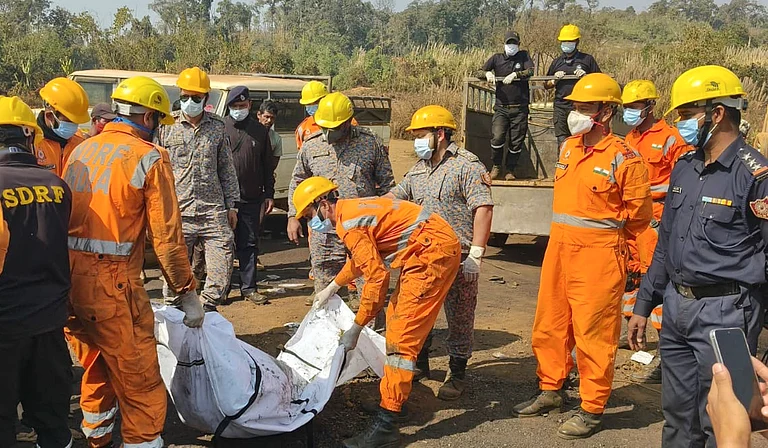EVERY Truth and Reconciliation Commission (TRC) hearing about the Mandela Football Club has been marked by two distinct things: a surprisingly small but vocal group of supporters of Winnie Madikizela-Mandela and a massive local and international media presence.
On a wall outside the venue last week, Winnie's supporters had placed a poster announcing: "It was war", a bid to place the alleged actions of the woman who once was perhaps the most elegant and noble symbol of the struggle against apartheid in the context of the war of attrition between the apartheid regime and its opponents. Inside, the TRC commissioners battled to get to the bottom of a highly confusing, blurred tale of violence, murder and intimidation which has marked the hearing, the most controversial and closely watched episode in the commission's two-year history.
Veteran liberal politician Helen Suzman, the only white parliamentarian who expressed open solidarity with Winnie through her years of banishment and detention, seemed to agree with the sentiments of the poster and said: "The woman clearly thought she was fighting a war."
Throughout the hearing, one of the most distant concepts is truth—the main job of the commissioners is to cut through the web of lies and deceit to find out what really happened in the Soweto of the '80s. Their job is not an easy one: virtually every witness has had a personal agenda and, in many cases, a political one. The commission's main job is to establish morality in a world marked by political expediency, deception, manipulation and outright lies.
Last week, the chairman of the commission, Archbishop Desmond Tutu, felt obliged to explain that this was not a trial. In fact, no one was on trial, he said. The truth commission's job was to find out whether there'd been a gross human rights violation, not to find anyone guilty. And the hearing was on the Mandela United Football Club, not Winnie. But this is like no other human rights violations hearing. The alleged perpetrator was present, larger than life, in a kind of self-made 'dock', from where she stared at those giving testimony. Elegantly clad and accompanied by daughters Zindzi and Zenani she sat stoically through hours of claims: stories of murder, intimidation, abuse and terror. All this live of South African TV. Her expressions betrayed nothing as she denied ordering the murder of child activist Stompie Seipei. The only giveaway was her eyes, slightly reddened behind her designer diamond-framed glasses.
The families of the victims cut a less striking figure.cut a less striking figure.Phumzile Dlamini, small and huddled, took the stand to testify that Winnie had beaten her up because of sexual jealousy. She said she had been involved with Shakes, a member of Winnie's Mandela United Football Club. He had told her on no account to let Winnie find out about the affair. While she was pregnant with his child, she was assaulted by Winnie, she claimed, and some time later Winnie picked her up from her home. Said Dlamini: "When we got to Winnie's house she said (to the football team members), 'Guys, see what you are going to do with this one. She doesn't want to speak the truth'."
Then, Dlamini continued, they started beating her. "Zindzi (Winnie's daughter) came and said, 'What's happening?'" It was Zindzi who saved her, said Dlamini. Her child, now nine, has learning difficulties and can't follow simple instructions. Throughout Dlamini's testimony, Zindzi looked anxious and grim. It was one of the few times during the hearings she'd displayed anxiety. But perhaps it was just perplexity.
For his part, Winnie's lawyer Ishmael Semenya said: "Zindzi denies she ever intervened in any assault." Dlamini's brother, Tloli, was also a member of the football team. He was shot by a teammate, Sizwe Sithole, who later died in police detention.
Nicodemus Sono, father of Lolo Sono, spoke with quiet anguish. He last saw his son alive in Winnie's presence. Said he: "When Lolo tried to speak, he was told to shut up by Mrs Mandela. I tried to explain that Lolo was not a spy. I started pleading with her. But (Winnie said), 'We'll see what to do with this dog. The movement will deal with him.'" The tale of 14-year-old Seipei is equally horrifying. After all, he was a self-proclaimed general of the 'under-14s' in Tumahole, near Parys in the Free State, a fearless child who, as Methodist Bishop Paul Verryn put it, had had to deal in his short life with what most adults never have to face. Four witnesses testified that he was beaten up by members of the football team and by Winnie herself. Winnie's driver John morgan found him: "His face was as round as a football."
Former members of the Mandela Crisis Committee, most now prominent members of the government, and two former leaders of the Mass Democratic Movement, which distanced itself from Winnie in '89, broke their silence, though not in unison. Sydney Mufamadi, minister of security, said under cross-examination that Winnie had lied in a closed truth commission hearing earlier this month.
While reaching for the truth, the commission will have to keep in mind the tenor of the times, then and now. As Azhar Cacha-lia, who comes from a prominent anti-apartheid family, said to Winnie during the hearing: "Part of me wants to go over and hug you and say, let's just forget the nightmare but another part says we cannot go forward until there's some accountability." That's the balance the commission will be aiming at. No easy job.

























